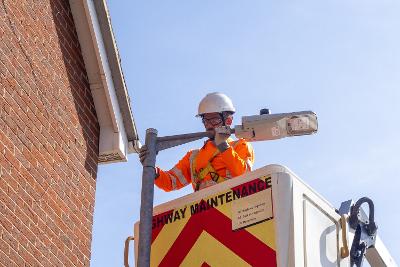Norfolk County Council slashes carbon emissions by 61%, on track to meet net zero target by 2030

Norfolk County Council is on course to hit its 2030 carbon emissions savings target, according to the latest data.
The council has reduced its emissions by 61% compared to the baseline from 2016/17. This impressive result has been achieved by implementing a range of measures; such as improving energy efficiency in its buildings, switching from gas to electric heating, and installing energy-efficient LED street lighting.
Councillor James Bensly, cabinet member for environment and waste at Norfolk County Council, said:
"We are proud of our progress in reducing our carbon footprint and leading by example in tackling climate change. We are committed to achieving net zero carbon emissions by 2030 and supporting Norfolk's transition to a low carbon and resilient future. We are also grateful to our partners and communities who are working with us to make this happen."
In June 2023, Norfolk County Council launched its Climate Strategy. This set out the council's approach to addressing its own emissions but also how it can support Norfolk's development as a low carbon and climate resilient place to live, visit and do business. The council have published over 130 actions outlining the practical steps being taken to meet their climate ambitions.
In a report to the council's Infrastructure and Development Committee, the council have set out the progress they have made so far, and the next steps needed to reach net zero for the council's own estate by 2030.
The council's project to replace Norfolk's streetlights with energy-efficient LEDs has been a resounding success. To date, it has saved £16.5 million, 88.75 million kWh in energy and more than 26,000 tonnes of carbon. The project is now in its final phases, with the remaining 5% of streetlights to be converted by April 2025.
Norfolk County Council's climate approach was recognised in the 2023 Council Climate Action Scorecards which saw the authority ranked second among England's County Councils for its climate action approach.
Case Study - Future Ready and Fakenham Library
Norfolk County Council has embarked on the Future Ready Programme - modernising the county council's buildings, including fire stations, libraries, children's homes, museums, and offices.
The programme will make older buildings fit for purpose, cut energy bills and help the council to reach its carbon savings over the coming years.
Oil and gas heating systems that are reaching the end of their lives will be replaced with more modern, energy-efficient heat pumps. There will also be improvements to each building's 'thermal performance' through significant enhancements to insulation and the installation of new windows and doors.
Fakenham Library has already had the 'Future Ready' treatment and the building is already seeing the benefits. Modern insulation was added in the roof and cavity wall, alongside some replacement windows. This allowed the installation of a heat pump to replace a failed boiler and improve energy efficiency. The early results are are encouraging, showing over a 50% reduction in energy consumption for the first part of the year. The reaction from staff and members of the public has been equally positive, with many people commenting that it has created a warmer and more comfortable environment.
The first full year of the programme will include work on 12 council sites across the county and the council is seeking further funding from government to tackle more properties. Services will be maintained where possible and temporarily relocated where significant works are taking place.
Climate Action Plan Annual Report
The 'Climate Action Plan Annual Report' will be considered by the Infrastructure and Development Select Committee when it meets on 11 September. You can watch the meeting, live or afterwards, and read the reports online.




